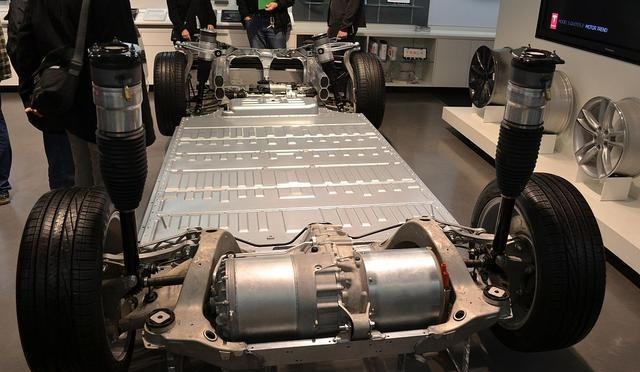The latest research indicates that the price of electric vehicle power batteries has fallen by 13% this year and will exceed the $ 100 per kWh target by 2023.
Although technically speaking, electric cars haven't become as popular as "take-off" from some people's expectations from 2010 to now, but some pure economists have expressed their opinion that they will be electric cars from 2020. Usher in a real period of market boom.
The main factor supporting their reasoning is that the price of the most important component of electric vehicles-the price of power batteries-is declining due to technological advances. From 2010 to 2019, from the perspective of the battery pack as a whole, the price of lithium-ion batteries has dropped from US $ 1,100 per kWh to US $ 156 per kWh, a decline of up to 87%. In fact, from last year to this year, its cost price has dropped by 13%.

These figures are part of a recent annual report released by Bloomberg New Energy Finance (BNEF). The report also states that we will reach the $ 100 per kWh target by 2023.
A battery pack is not only the most important component of an electric vehicle. It is also usually the most expensive component in an electric vehicle. So far, as the price of power batteries continues to drop, automakers have started to decide to add more battery capacity to their electric vehicles. And with the continuous development of infrastructure, electric vehicles with moderate battery capacity and lower prices still have great market potential.
Just two years ago in 2017, the average price of lithium-ion automotive battery packs was still $ 209 per kilowatt-hour. BNEF had predicted that by 2025, the price of lithium-ion automotive battery packs would fall below $ 100 per kilowatt. Time.
Why is the new forecast now earlier than previously expected? This is partly because battery orders have become larger, which represents a vote of confidence among automakers that the global electric vehicle market will continue to grow.
BNEF now expects that battery-based battery prices will fall below the $ 100 per kilowatt-hour mark by 2024. The report also pointed out that battery prices will continue to decline by 2030 and are expected to reach $ 61 per kilowatt-hour, but the uncertainty of this latter goal is much greater.
BNEF estimates the size of the global battery market at $ 116 billion annually, excluding investment in the supply chain. But as battery and battery pack prices fall, consumers will get more benefits than they do now.
As automakers continue to simplify the design of electric vehicles, making them the basis for standardized batteries and modules, these batteries and modules can now be scaled up or down within the platform, such as the latest Volkswagen MEB electric vehicle Architecture. The new platform can also standardize some auxiliary parts for electric vehicles, such as cooling systems, making them cheaper.
In the nearly ten years since the development of electric vehicles from 2010 to the present, its factory and manufacturing costs have continued to decline, and this decline has exceeded previous expectations. In order to reduce transportation costs and avoid import duties as much as possible, more and more battery manufacturers are setting up factories by region. For example, as the world's largest new energy market, China, in addition to local battery manufacturers Ningde Times and BYD, foreign battery manufacturers such as South Korea's SK Innovation have established new battery factories in Changzhou, Jiangsu; while Panasonic has Dalian in China And two battery plants in Suzhou; LG Chem plans to build a plant in Tianjin in addition to its battery plant in Nanjing.
As for the second largest market for new energy vehicles in the United States, SK Innovation is building a plant in Georgia and supplying raw materials for Volkswagen's electric vehicle production in Tennessee; LG Chemical and General Motors have just announced the establishment of a joint venture plant in Ohio ; China's battery giant Ningde Times is also considering building sites in the United States.
In the second half of this century, the benefits of scaling up and standardization may be reduced, while more revenue for automakers and battery manufacturers may come from the expansion of more existing facilities and the transformation of manufacturing equipment And material-related upgrades.
The continued decline in battery prices has a wide range of impacts and has exceeded the scope of passenger cars. BNEF points out that this makes the electrification of commercial vehicles more attractive.
The company expects that as costs continue to fall, automakers may soon face new options-longer product life cycles or lower costs. When large-capacity power batteries are commonly used like the affordable computer memories now, this choice may become a better basis for distinguishing high-end cars from ordinary cars.

